Bro. Harry Belafonte | Honorary | #29

Bro. Harry Belafonte was born Harold George Bellanfanti Jr.; March 1, 1927, in Harlem, NY, the son of Jamaican-born parents Harold George Bellanfanti Sr., who worked as a chef, and Melvine (née Love), a housekeeper. Harry is an American singer, activist, and actor. As arguably the most successful Jamaican-American pop star, he popularized the Trinbagonian Caribbean musical style with an international audience in the 1950s. His breakthrough album Calypso (1956) was the first million-selling LP by a single artist.
From 1932 to 1940, Belafonte lived with one of his grandmothers in her native country of Jamaica, where he attended Wolmer's Schools. Upon returning to New York City, he attended George Washington High School after which he joined the Navy and served during World War II. In the 1940s, he was working as a janitor's assistant when a tenant gave him, as a gratuity, two tickets to see the American Negro Theater. He fell in love with the art form and also became friends with Sidney Poitier. The financially struggling pair regularly purchased a single seat to local plays, trading places in between acts, after informing the other about the progression of the play. At the end of the 1940s, he took classes in acting at the Dramatic Workshop of The New School in New York with the influential German director Erwin Piscator alongside Marlon Brando, Tony Curtis, Walter Matthau, Bea Arthur, and Poitier, while performing with the American Negro Theater. He subsequently received a Tony Award for his participation in the Broadway revue John Murray Anderson's Almanac (1954). He also starred in the 1955 Broadway revue 3 for Tonight with Gower Champion.
Belafonte started his career in music as a club singer in New York to pay for his acting classes. The first time he appeared in front of an audience, he was backed by the Charlie Parker band, which included Charlie Parker himself, Max Roach and Miles Davis, among others. He launched his recording career as a pop singer on the Roost label in 1949, but quickly developed a keen interest in folk music, learning material through the Library of Congress' American folk songs archives. With guitarist and friend Millard Thomas, Belafonte soon made his debut at the legendary jazz club The Village Vanguard. He signed a contract with RCA Victor in 1953, recording regularly for the label until 1974.
Belafonte also performed during the Rat Pack era in Las Vegas. He and associated acts such as Liberace, Ray Vasquez, and Sammy Davis Jr. were featured at the Sands Hotel and Casino and the Dunes Hotel.
Belafonte is best known for his recordings of "The Banana Boat Song", with its signature "Day-O" lyric, "Jump in the Line", and "Jamaica Farewell". He has recorded and performed in many genres, including blues, folk, gospel, show tunes, and American standards. He has also starred in several films, including Carmen Jones (1954), Island in the Sun (1957), and Odds Against Tomorrow (1959).
Belafonte considered the actor, singer and activist Paul Robeson a mentor, and was a close confidant of Martin Luther King Jr. in the Civil Rights Movement in the 1950s and 1960s. As he later recalled, "Paul Robeson had been my first great formative influence; you might say he gave me my backbone. Martin King was the second; he nourished my soul." Throughout his career, Belafonte has been an advocate for political and humanitarian causes, such as the Anti-Apartheid Movement and USA for Africa. Since 1987, he has been a UNICEF Goodwill Ambassador. He was a vocal critic of the policies of the George W. Bush presidential administrations. Belafonte acts as the American Civil Liberties Union celebrity ambassador for juvenile justice issues.
In 1959, Belafonte starred in Tonight With Belafonte, a nationally televised special that featured Odetta, who sang "Water Boy" and who performed a duet with Belafonte of "There's a Hole in My Bucket" that hit the national charts in 1961.[20] Belafonte was the first Jamaican American to win an Emmy, for Revlon Revue: Tonight with Belafonte (1959).[5] Two live albums, both recorded at Carnegie Hall in 1959 and 1960, enjoyed critical and commercial success. From his 1959 album, "Hava Nagila" became part of his regular routine and one of his signature songs.[21] He was one of many entertainers recruited by Frank Sinatra to perform at the inaugural gala of President John F. Kennedy in 1961. Later that year, RCA Victor released another calypso album, Jump Up Calypso, which went on to become another million seller. During the 1960s he introduced several artists to American audiences, most notably South African singer Miriam Makeba and Greek singer Nana Mouskouri. His album Midnight Special (1962) included a young harmonica player named Bob Dylan.
Belafonte has won three Grammy Awards (including a Grammy Lifetime Achievement Award), an Emmy Award, and a Tony Award. In 1989, he received the Kennedy Center Honors. He was awarded the Kennedy Center Honorsin 1994. In 2014, he received the Jean Hersholt Humanitarian Award at the Academy's 6th Annual Governors Awards and in 2022 was inducted into the Rock and Roll Hall of Fame in the Early Influence category and is the oldest living person to have received the honor.
Awards:3X Grammy Award winner, Emmy Award winner, and Tony Award winner, Jean Hersholt Humanitarian Award winner, Kennedy Center Honoree, Kennedy Center Honors, Inductee into the Rock and Roll Hall of Fame

